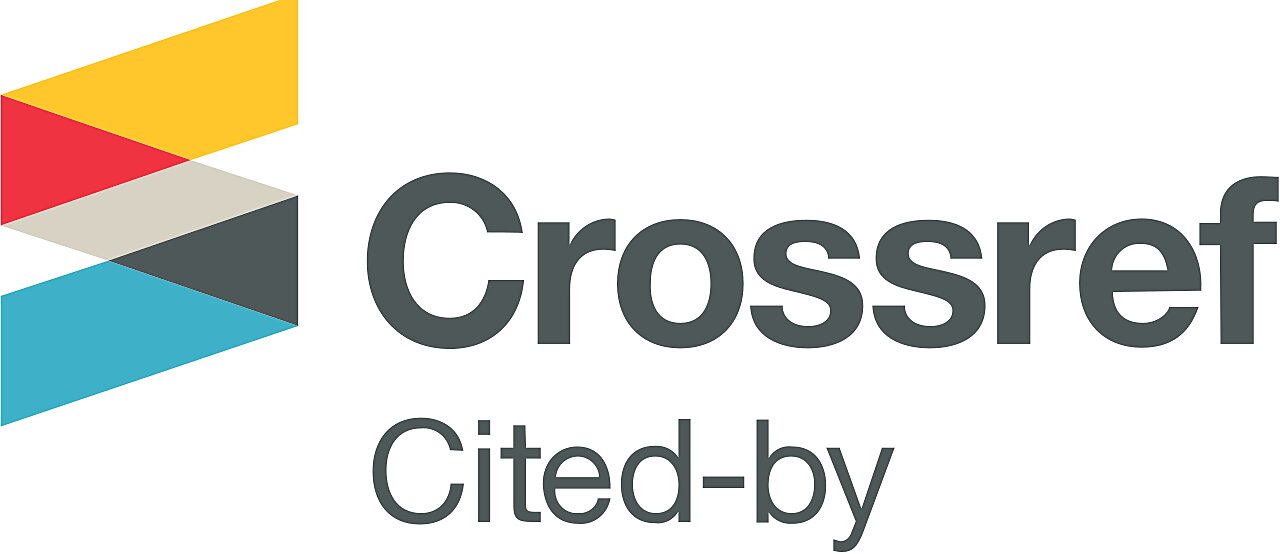
Biological control of coffee root mealybugs with entomopathogenic fungi Control biológico de cochinillas de las raíces del café con hongos entomopatógenos
Keywords

This work is licensed under a Creative Commons Attribution-NonCommercial-NoDerivatives 4.0 International License.
Summary
Coffee root mealybugs are a limiting pest in Colombian coffee farming; Puto barberi (Cockerell, 1895) (Hemiptera: Putoidae) is the prevailing species. In order to propose a strategy for the control of this pest, strains of Metarhizium anisopliae Ma 9236 and M. robertsii were evaluated under laboratory conditions at concentrations of 1x107 conidia/mL; mortalities between 80% and 84% on P. barberi were found. They were also evaluated on coffee seedlings infested with the pest in three different trials. In the first one, 4 to 6-month-old plants infested with oviplen P. barberi females treated with 50 cm3 of: 1. M. anisopliae, 2. M. robertsii both at 2x10 10 conidia/L and 3. Water as control. With the water treatment, the infestation percentage was 100% and 25 mealybugs were found per plant. The application of M. anisopliae decreased the mealybugs infestation by 10% and reduced the population by 55%. M. robertsii decreased the infestation by 40% and the insect population by 86%. In trial 2, M. robertsii vs. Water showed results similar to those obtained in trial 1 and 50% plant protection was achieved. In trial 3, the treatments corresponded to: 1. M. robertsii (2x10 10 conidia/L). 2. Azaridachtin 6% water soluble powder (3g/L). 3. Chlorpyrifos 75% WG (3g/L) and 4. Water. In the water control treatment the infestation percentage was 65%, in the other treatments the infestations were between 11 and 22%, which differed from the control, but were statistically similar to each other. M. robertsii is a good candidate to be evaluated under commercial and field seedling conditions
Author biography (See)
References (See)
- Ahmad, I., Jiménez-Gasco, M., Luthe, D. S., Shakeel, S. N., & Barbercheck, M. E. (2020). Endophytic Metarhizium robertsii promotes maize growth, suppresses insect growth, and alters plant defense gene expression. Biological Control, 144, 104167. https://doi.org/10.1016/j.biocontrol.2019.104167
- Arcila, A. (2015). Instructivo: Cómo modificar una aspersora de palanca para controlar las cochinillas de las raíces. Cenicafé. https://www.cenicafe.org/es/publications/InstructivoCochillas.pdf
- Benavides, P., Gil, Z. N., Constantino, L. M., Villegas, C., & Giraldo, M. (2013). Plagas del café broca, minador, cochinillas harinosas, arañita roja y monalonion. En Federación Nacional de Cafeteros de Colombia (Ed.), Manual del cafetero colombiano: investigación y tecnología para la sostenibilidad de la caficultura (Vol. 2, pp. 215–260). Cenicafé.
- Belevich, O., Yurchenko, Y., Krivopalov, A., Kryukov, V., & Glupov, V. (2018). Effects of Metarhizium robertsii on the bloodsucking mosquito Aedes flavescens and non?target predatory insects (Odonata). Journal of Applied Entomology, 142(6), 632–635. https://doi.org/10.1111/jen.12509
- Bischoff, J. F., Rehnar, S. A., & Humber, R. A. (2009). A multilocus phylogeny of the Metarhizium anisopliae lineage. Mycologia, 101, 512–530. https://doi.org/10.3852/07-202
- Caballero, A., Ramos-Portilla, A. A., Suárez-González, D., Serna, F., Gil, Z. N., & Benavides, P. (2019). Los insectos escama (Hemiptera: Coccomorpha) de raíces de café (Coffea arabica L.) en Colombia, con registros de hormigas (Hymenoptera: Formicidae) en asociación. Ciencia & Tecnología Agropecuaria, 20(1), 69–92. https://doi.org/10.21930/rcta.vol20_num1_art:1250
- Centro Nacional de Investigaciones de Café . (2018). Anuario meteorológico cafetero 2017. http://hdl.handle.net/10778/660
- Dreyer, M., & Hellpap, C. (1991). Neem-a promising natural insecticide for small scale vegetable production in tropical and subtropical countries. Zeitschrift fuer Pflanzenkrankheiten und Pflanzenschutz (Germany, FR).
- Espinel, C., Torres, L. A., Villamizar, L. F., Bustillo, A. E., Zuluaga, M. V., & Cotes, A. M. (2018). Hongos entomopatógenos en el control biológico de insectos plaga. En A. M. Cotes (Ed.). Control biológico de fitopatógenos, insectos y ácaros (Vol. 1, pp. 334–367). Agrosavia. http://hdl.handle.net/20.500.12324/34071
- Gil, Z. N., Benavides Machado, P., & Villegas-García, C. (2015). Manejo integrado de las cochinillas de las raíces del café. Avances Técnicos Cenicafé, 459, 1–8. http://hdl.handle.net/10778/637
- Hu, G., & St. Leger, R. J. (2002). Field Studies Using a Recombinant Mycoinsecticide (Metarhizium anisopliae) Reveal that It Is Rhizosphere Competent. Applied and Environmental Microbiology, 68(12), 6383–6387. https://doi.org/10.1128/AEM.68.12.6383-6387.2002
- Instituto Colombiano Agropecuario (ICA). (2018). Plaguicidas Químicos. Recuperado de https://www.ica.gov.co/Areas/Agrícola/Servicios/Regulación y Control de-PlaguicidasQuimicos.aspx
- Liao, X., Lovett, B., Fang, W., & St Leger, R. J. (2017). Metarhizium robertsii produces indole-3-acetic acid, which promotes root growth in Arabidopsis and enhances virulence to insects. Microbiology, 163(7), 980–991. https://doi.org/10.1099/mic.0.000494
- Liao, X., O’Brien, T. R., Fang, W., & St. Leger, R. J. (2014). The plant beneficial effects of Metarhizium species correlate with their association with roots. Applied Microbiology and Biotechnology, 98(16), 7089–7096. https://doi.org/10.1007/s00253-014-5788-2
- Lowery, D. T., Isman, M. B., & Brard, N. L. (1993). Laboratory and Field Evaluation of Neem for the Control of Aphids (Homoptera: Aphididae). Journal of Economic Entomology, 86(3), 864–870. https://doi.org/10.1093/jee/86.3.864
- Moorhouse, E. R., Easterbrook, M. A., Gillespie, A. T., & Charnley, A. K. (1993). Control of Otiorhynchus sulcatus (Fabricius) (Coleoptera: Curculionidae) Larvae on a Range of Hardy Ornamental Nursery Stock Species Using the Entomogenous Fungus Metarhizium anisopliae. Biocontrol Science and Technology, 3(1), 63–72. https://doi.org/10.1080/09583159309355260
- Ramos Portilla, A. A., & Serna Cardona, F. J. (2004). Coccoidea de Colombia, con énfasis en las cochinillas harinosas (Hemiptera: pseudococcidae). Revista Facultad Nacional de Agronomía Medellín, 57(2), 2383-2411. https://revistas.unal.edu.co/index.php/refame/article/view/24191
- Sasan, R. K., & Bidochka, M. J. (2012). The insect-pathogenic fungus Metarhizium robertsii (Clavicipitaceae) is also an endophyte that stimulates plant root development. American Journal of Botany, 99(1), 101–107. https://pubmed.ncbi.nlm.nih.gov/22174335/
- Tyurin, M. V., Kryukov, V. Yu., Yaroslavtseva, O. N., Elisafenko, E. A., Dubovskiy, I. M., & Glupov, V. V. (2016). Comparative analysis of immune responses in Colorado potato beetle larvae during development of mycoses caused by Metarhizium robertsii, M. brunneum, and M. pemphigi. Journal of Evolutionary Biochemistry and Physiology, 52(3), 252–260. https://doi.org/10.1134/S002209301603008X
- United States Environmental Protection Agency. (2018, diciembre 19). Pesticide registration improvement act- SoluNeem. https://www3.epa.gov/pesticides/chem_search/ppls/081899-00004-20181219.pdf
- Villegas, C., Bustillo Pardey, A. E., Zabala Echavarría, G., Benavides Machado, P., & Ramos Portilla, A. A. (2008). Cochinillas harinosas en cafetales colombianos. En A. E. Bustillo Pardey (Ed.), Los insectos y su manejo en la caficultura colombiana (pp. 342–354). Cenicafé.
- Villegas, C., Zabala Echavarría, G., Ramos, A. A., & Benavides Machado, P. (2009). Identificación y hábitos de cochinillas harinosas asociadas a raíces del café en Quindío. Revista Cenicafé, 60(4), 362–373. http://hdl.handle.net/10778/153
- Vittal Mallya Scientific Research Foundation. (2020, March 3). Solu neem, water soluble bio insectcide, botanical plant protactant, bio pesticides. Pesticides. http://www.vmsrf.org/html/solu-neem.html.
- Williams, D. J., & Willink, M. C. G. (1992). Mealybugs of Central and South America. CAB International Wallingford UK. https://www.cabi.org/isc/abstract/19921165001
Most read articles by the same author(s)
- Juan Maldonado-Cepeda, Jesús Gómez-Llano, Pablo Benavides Machado, Luis Eduardo Escobar, Zulma Gil-Palacio, Weeds and their importance in sustaining the diversity of floral visiting insects in coffee crops , Cenicafe Journal: Vol. 74 No. 1 (2023): Cenicafé Journal
- Rocío Espinosa, Zulma Gil-Palacio, Pablo Benavides Machado, Flower visitors of Ochroma pyramidale in agroforestry systems with coffee and natural cover in the department of Santander , Cenicafe Journal: Vol. 73 No. 2 (2022): Cenicafé Journal
- Luis Miguel Constantino, Zulma Gil-Palacio, Juan Guillermo Orrego, Cristian Zamorano, Pablo Benavides, Carlos Roberto Ariza, Carlos Mario Ospina-Penagos, Jhon Felix Trejos Pinzón, Hernán Darío Menza, White grubs (Coleoptera: melolonthidae) associated with the cultivation of Coffea Arabica coffee in Colombia and characterization of damages. , Cenicafe Journal: Vol. 74 No. 2 (2023): Cenicafé Journal







